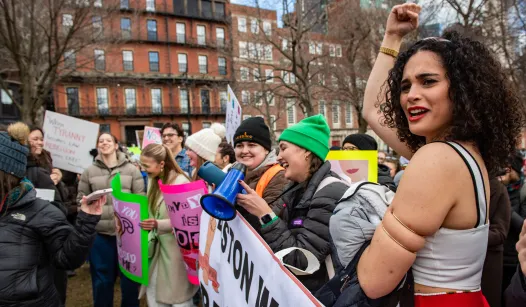A recent poll surveying Generation Z reveals some surprising insights into the life priorities and political beliefs of young women across the United States. As the political landscape continues to evolve, it appears that radical feminism is gaining traction among this demographic, influencing their perspectives and priorities regardless of party affiliation.
The survey highlights a significant shift in how young women view issues such as gender equality, reproductive rights, and social justice. Many respondents expressed a strong commitment to feminist ideals, often aligning with radical feminist principles that advocate for systemic change rather than incremental reforms. This shift raises important questions about the future of political engagement and activism among young women.
One of the most striking findings from the poll is the emphasis on intersectionality. Young women are increasingly aware of how race, class, and sexuality intersect with gender, shaping their experiences and political beliefs. This awareness fosters a more inclusive approach to feminism, one that resonates with diverse groups and challenges traditional narratives.
Moreover, the poll indicates that young women are not only vocal about their beliefs but also actively seeking change. Many participants reported involvement in political activism, whether through grassroots organizations, social media campaigns, or community outreach. This engagement reflects a desire for a more equitable society and a recognition that collective action is essential for achieving meaningful progress.
Interestingly, the poll reveals that these trends are not confined to one political party. Young women from both the Democratic and Republican parties are embracing radical feminist ideas, albeit in different ways. For some, this means advocating for policies that promote reproductive rights and gender equity, while for others, it may involve challenging traditional gender roles and advocating for women’s empowerment in more conservative contexts.
As radical feminism continues to shape the political discourse among young women, it is essential to consider the implications for future elections and policy decisions. The growing influence of this movement could lead to a more progressive agenda, as young women demand that their voices be heard and their needs addressed. Politicians and political parties will need to pay close attention to these shifts to remain relevant and responsive to the concerns of this emerging voter base.
In conclusion, the findings from the recent poll underscore the importance of understanding the evolving political landscape among young women in the United States. Radical feminism is not just a fringe movement; it is becoming a central part of the political identity for many Gen Z women, shaping their priorities and activism. As this generation continues to engage with political issues, the impact of their beliefs on the broader political arena will be significant, making it crucial for all stakeholders to listen and adapt to these changes.
